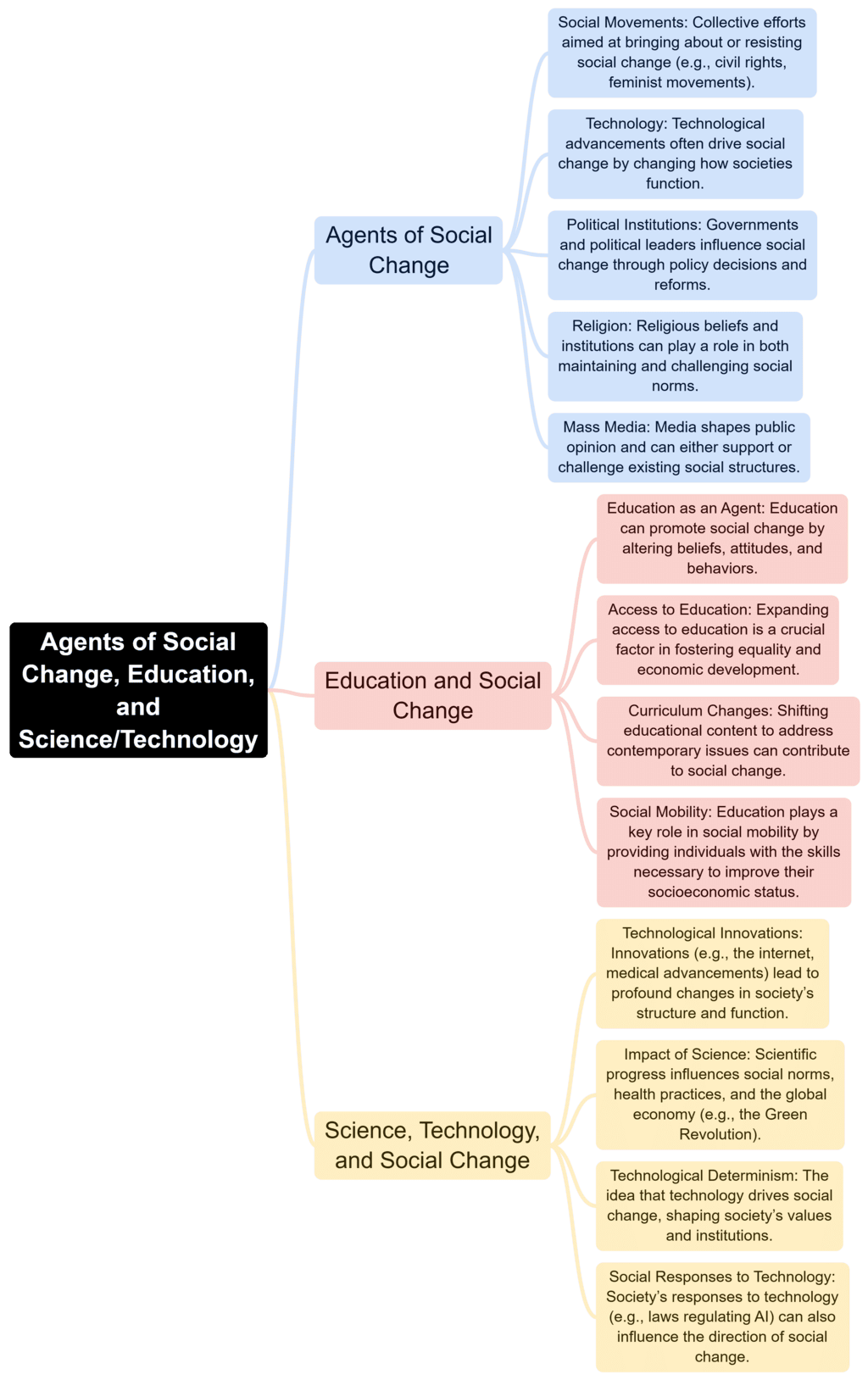UPSC Exam > UPSC Notes > Sociology Optional for UPSC (Notes) > Mind Map: Social Change in Modern Society
Mind Map: Social Change in Modern Society | Sociology Optional for UPSC (Notes) PDF Download


The document Mind Map: Social Change in Modern Society | Sociology Optional for UPSC (Notes) is a part of the UPSC Course Sociology Optional for UPSC (Notes).
All you need of UPSC at this link: UPSC
|
112 videos|389 docs
|
FAQs on Mind Map: Social Change in Modern Society - Sociology Optional for UPSC (Notes)
| 1. What are the main factors driving social change in modern society? |  |
Ans. The main factors driving social change in modern society include technological advancements, economic shifts, cultural transformations, political movements, and globalization. Technology, for instance, has revolutionized communication and access to information, impacting social interactions and community structures. Economic changes, such as the rise of the gig economy, influence job security and work patterns. Cultural shifts often arise from changing values and norms, while political movements can challenge existing power structures. Globalization connects societies, leading to both cultural exchange and conflict.
| 2. How does social media influence social change? |  |
Ans. Social media plays a significant role in influencing social change by providing a platform for activism, awareness, and community building. It enables individuals to share their experiences and mobilize support for various causes, such as climate change, social justice, and human rights. The rapid spread of information through social media can galvanize public opinion and pressure authorities to enact change. However, it can also propagate misinformation, leading to division and conflict.
| 3. What role do youth play in social change? |  |
Ans. Youth play a crucial role in social change as they often drive innovation, challenge the status quo, and advocate for progressive policies. Their unique perspectives and energy allow them to engage in movements that address issues like climate change, equality, and education reform. Young people are often at the forefront of protests and social movements, utilizing digital tools to amplify their voices and connect with others globally.
| 4. What are the consequences of social change on traditional values? |  |
Ans. The consequences of social change on traditional values can be both positive and negative. On one hand, social change can lead to the re-evaluation and modernization of outdated norms, promoting inclusivity and progress. On the other hand, it may result in a backlash from those who feel threatened by these changes, potentially leading to cultural conflicts. The challenge lies in balancing respect for traditional values with the need for societal progress.
| 5. How do government policies affect social change? |  |
Ans. Government policies significantly affect social change by either facilitating or hindering progress. Policies that promote equality, education, and healthcare can lead to positive social transformations, empowering marginalized communities. Conversely, restrictive policies can reinforce existing inequalities and social injustices. The responsiveness of government to social movements often dictates the pace and direction of social change in a society.
Related Searches














